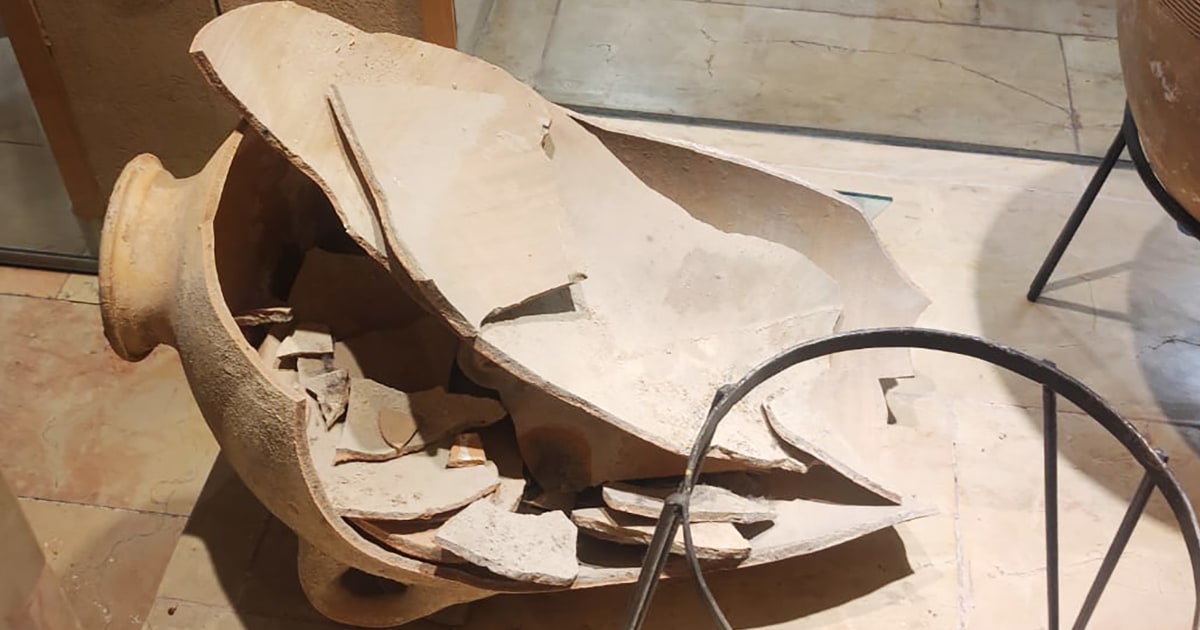A 4-year-old accidentally knocked over and shattered a 3,500-year-old Bronze Age jar during a visit to the Hecht Museum at the University of Haifa in Israel on Friday.
The museum said the artifact, which is dated from 2200–1500 B.C.E., was designed to store and transport goods, such as olive oil and wine, and was characteristic of the ancient Canaan region. The jar, the museum said in a statement, predated the Biblical kings Solomon and David.
Though similar jars have been discovered in archaeological excavations, many are found in pieces or incomplete, making this jar rare for having been unearthed intact, and for its size.
The child’s father, who was identified only by his first name, Alex, told the BBC that his son was “curious about what was inside” and “pulled the jar slightly,” which tipped it from its stand, shattering it into pieces. Alex added that he was “in shock” and initially believed that his son hadn’t broken the jar.
“There are instances where display items are intentionally damaged, and such cases are treated with great severity, including involving the police,” the museum said.
“In this case, however, this was not the situation. The jar was accidentally damaged by a young child visiting the museum,” and the museum’s response will take that into account.
As a further sign that there were no hard feelings, Inbal Rivlin, the museum’s general director, publicly invited the child and his family to return to the museum to see the restored jar. The family has accepted and will be visiting this weekend, when the museum plans to have finished repairs on the jar.
The jar will be restored by conservationist Roy Shafir from the University of Haifa’s School of Archaeology and Marine Cultures. “Soon the jar will be visible again, along with the work that facilitated its ‘rescue,’” the museum said.
The Hecht Museum prioritizes public access to archaeological artifacts, and items are often displayed without glass or other barriers.
The museum also said that it will continue the tradition of allowing visitors to experience archaeological finds without obstructions, despite the broken jar.

